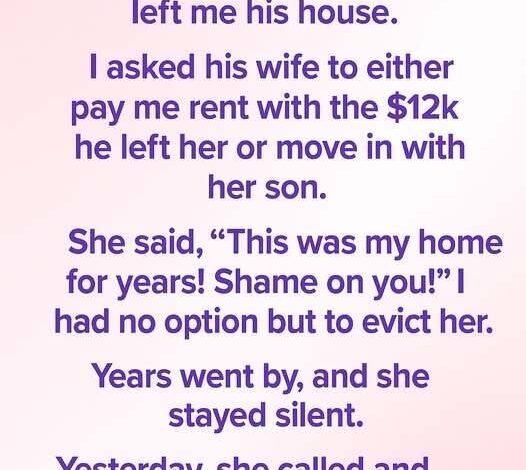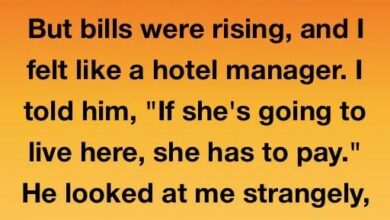
“I inherited my dad’s house and faced a difficult decision. Years later, his wife reached out with a surprising message.”
When my father passed, he left me his house. It was generous, but it brought complications. His wife—my stepmother—had lived there for years. I told her she could either move in with her son or use the $12,000 my dad left her for rent. She looked at me, hurt. “This was my home,” she said. “You should feel ashamed.”
I didn’t want to hurt her, but I had bills—property taxes, repairs, responsibilities I hadn’t anticipated. I offered options, hoping we could find middle ground. She refused them all. The day she moved out, she stopped speaking to me.
Years passed in silence. I sometimes wondered if I had made the wrong choice. I thought about family dinners, vacations, and the way my dad’s face lit up when we were together. Losing him was hard enough. Losing someone he loved, someone who had shared his life, made the grief feel heavier. The guilt lingered, quiet but persistent, like a door left ajar.
Yesterday, she called. Her voice was calm, but she asked to see me. When she arrived, she looked older, gentler. She carried a small package. I asked how long she had been carrying the sadness. “It wasn’t just the house,” she said. “It was losing him. I wasn’t ready to talk about money or change. I was just… broken.”
Inside the package was a letter I’d never seen—handwritten by my dad. He thanked me for always looking out for him, said he trusted me with the house, and hoped we could all find peace one day. Tucked beside it was a card from her: Thank you for understanding. I’m ready to let go.
We stood in the doorway, quiet. She sighed and said she hoped life had been kind to me. For the first time in years, we spoke not as adversaries but as two people who had loved the same man and grieved him differently. When she left, something lifted. Not everything was fixed, but something had shifted.
Closure doesn’t always arrive in clarity or perfect timing. Sometimes it comes years later, in a quiet moment, when forgiveness feels more like grace than surrender. Healing often begins not with answers, but with the courage to open the door again.




